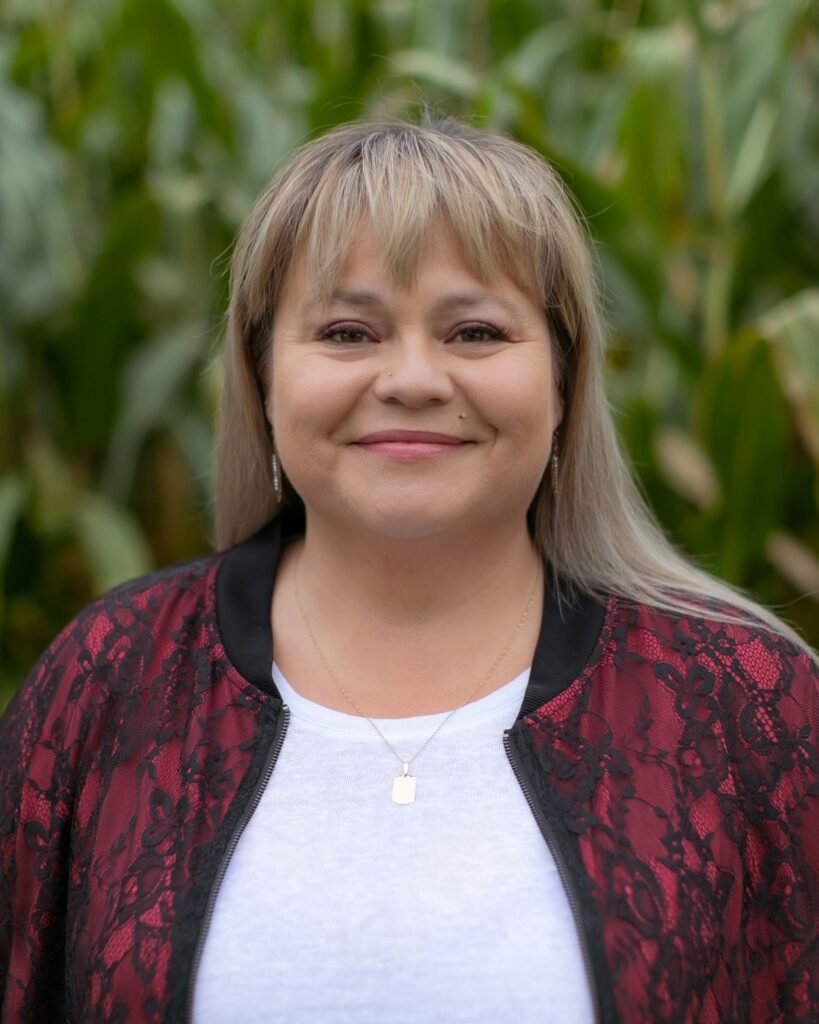
The Research Journey
The 22 Million Strong mission, tour and decade-long campaign emerged at the intersection of Nicolette’s Doctoral research, volunteer work, a career with her Green Moustache companies, and her personal desire to connect deeper to her own heritage as an African-Indian-Austrian-Canadian.
Nicolette’s research is being submitted as a dissertation by portfolio that includes four knowledge mobilization components: 1) 9-part podcast series, 2) “TED”-like Talk, 3) Journal Article, and 4) a dissertation synthesis paper.
Scroll down to view and learn more.
THE VOICES:
RESEARCH PARTICIPANTS
I would like to thank our colleagues at the Royal Roads University for their helpful comments and discussions throughout the course of this research. I would also like to extend my heartfelt thanks to every participant for generously volunteering their time and energy to participate in this study. Without their willingness to share their invaluable contributions, experiences and insights, this research would not have been possible.
Listen to their interviews below.
-

Dr. Adrianne Lickers Xavier
Director of the Indigenous Studies Program – McMaster University
-

Dr. Psyche Williams-Forson
Scholar, writer, & Associate Professor & Chair of American Studies
-

Dr. Amie "Breeze" Harper
Author, American critical race feminist & diversity strategist, & more...
-

Suzanne Methot, Nehiyaw
Trauma and Culture-Based Healing Author, Scholar, Speaker and more...
-

Dr. Warren Bell, MD Salmon Arm
GP, Founding President of Canadian Assoc. of Physicians for the Environment
-

Dr. Milton Mills, MD Virginia
Critical Care Physician, BoD - Plant-based Prevention Of Disease, Inc.
-

Dr. Nana Kwaku Opare, MD, MPH, CA
Integrative & preventive medicine physician, & more…
-

Dr. Marie Mihalicz, DSocSci
Indigenous Healing Scholar, Mental and Spiritual Healing & more…
-

Mixalhítsa7 Alison Pascal
Junior Curator at Squamish Lil'wat Cultural Centre, and more…
Presentation
The 2nd component of the research dissertation by portfolio is a visual media tool that will optimize the knowledge dissemination of the dissertation focus. A “TED” Talk is being co-created in collaboration with the research participants.
Journal Article
The 3rd component of the research dissertation by portfolio is a journal article, written as a single author, and submitted to the International Journal of Indigenous Health. The article will include credible academic peer review, rationale for selection of the article, and be complete with illustrations, charts, references, and appendices.
Dissertation Synthesis Paper
The 4th and final component of the research dissertation by portfolio is a Synthesis Paper that contains the statement of the problem and contextualization of the research, the theoretical or conceptual framework for the research, highlights of the literature reviewed, the methodology and methods, the findings, the discussion, the rationale for the dissertation format, complete identification of each portfolio piece, the conceptual linkage between the portfolio components, and the knowledge dissemination and transfer plan.
Nicolette’s research foundation is built upon Decolonizing Research Methodologies opposed to typical Eurocentric research approaches that have historically undervalued and undermined the rich experiences and knowledge of local and marginalized populations.
Along the tour, Nicolette and her team will gather will local Inuit, First Nations, and Métis communities, and physician and youth groups. They will connect over lunches and dinners made of traditional plant-strong meals and beverages. Engaging in a collaborative community-based approach, the discussions will be ebb and flow through topics such as:
Decolonizing Food Systems
Traditional Foods as Medicine
Reversing Type 2 Diabetes
Building Resilience and Wellness
Narrative Medicine
Indigenous Food Sovereignty, and
Regenerative Land-based Pedagogies and Practices.
Knowledge mobilization through storytelling is at the root of Nicolette’s research and life’s work. This journey will be captured and shared by way of a feature-length documentary, public presentations and workshops, and a book in order to improve education, programming and public policy at it relates to all the topics mentioned above.
She is on a mission to educate 22 million people on how to use traditional, unrefined, plant-based, whole-foods as medicine to reverse chronic illness and disease. The first mini-doc ‘Grounded in my Roots’ is about an urgent call to come back to our roots, to pre-settler, whole-foods as our foundation, as our medicine. We need to respect the BIPOC ways of knowing… what science has been telling us for over 200 years that traditional foods are our medicine.
Decolonizing Food Systems | Traditional Foods as Medicine | Reversing Type 2 Diabetes | Building Resilience and Wellness | Narrative Medicine | Indigenous Food Sovereignty | Regenerative Land-based Pedagogies and Practices
Decolonizing Food Systems | Traditional Foods as Medicine | Reversing Type 2 Diabetes | Building Resilience and Wellness | Narrative Medicine | Indigenous Food Sovereignty | Regenerative Land-based Pedagogies and Practices

References
-
• Thorpe Jr, R. J., Wynn, A. J., Walker, J. L., Smolen, J. R., Cary, M. P., Szanton, S. L., & Whitfield, K. E. (2016). Relationship between chronic conditions and disability in African American men and women. Journal of the National Medical Association, 108(1), 90-98
-
• DiNicolantonio, J. J., & O’Keefe, J. (2017). Markedly increased intake of refined carbohydrates and sugar is associated with the rise of coronary heart disease and diabetes among the Alaskan Inuit. Open Heart, 4(2), e000673.
• Steingraber, S. (2010). Living downstream: An ecologist's personal investigation of cancer and the environment. Da Capo Press.
• Storz, M. A. (2020). Will the plant-based movement redefine physicians’ understanding of chronic disease?. The New Bioethics, 26(2), 141-157.
• Swaminathan, S., Dehghan, M., Raj, J. M., Thomas, T., Rangarajan, S., Jenkins, D., ... & Yusuf, S. (2021). Associations of cereal grains intake with cardiovascular disease and mortality across 21 countries in Prospective Urban and Rural Epidemiology study: Prospective cohort study. bmj, 372.
• Thorpe Jr, R. J., Wynn, A. J., Walker, J. L., Smolen, J. R., Cary, M. P., Szanton, S. L., & Whitfield, K. E. (2016). Relationship between chronic conditions and disability in African American men and women. Journal of the National Medical Association, 108(1), 90-98.
-
• Barnard, N., Levin, S., & Trapp, C. (2014). Meat consumption as a risk factor for type 2 diabetes. Nutrients, 6(2), 897-910.
• Canadian Diabetes Cost Model. Ottawa: Diabetes Canada; 2016.
• Dean, H. J., & Sellers, E. A. (2014). Why Children with Diabetes Matter to All of Us: The Seven Generations. Canadian Journal of Diabetes, 38(4), 217-218.
• DiNicolantonio, J. J., & O’Keefe, J. (2017). Markedly increased intake of refined carbohydrates and sugar is associated with the rise of coronary heart disease and diabetes among the Alaskan Inuit. Open Heart, 4(2), e000673.
• Halseth, R. (2019). The prevalence of type 2 diabetes among First Nations and considerations for prevention. Prince George, BC: National Collaborating Centre for Aboriginal Health.
• Leung, L. (2016). Diabetes mellitus and the Aboriginal diabetic initiative in Canada: An update review. Journal of Family Medicine and Primary Care, 5(2), 259.
• Mahzari, M., & Mamun, A. (2020). Does Consumption of Refined Carbohydrates Predict the Incidence of Type 2 Diabetes Mellitus? A Systematic Review and Meta-Analysis. Romanian Journal of Diabetes Nutrition and Metabolic Diseases, 27(2), 168-179.
• McMacken, M., & Shah, S. (2017). A plant-based diet for the prevention and treatment of type 2 diabetes. Journal of geriatric cardiology: JGC, 14(5), 342–354.
• Pelletier, C., Dai, S., Roberts, K. C., & Bienek, A. (2012). Report summary Diabetes in Canada: facts and figures from a public health perspective. Chronic diseases and injuries in Canada, 33(1).
• Sanders, L. M., Wilcox, M. L., & Maki, K. C. (2022). Red meat consumption and risk factors for type 2 diabetes: a systematic review and meta-analysis of randomized controlled trials. European Journal of Clinical Nutrition, 1-10.
• Satija, A., et al. (2016). Plant-Based Dietary Patterns and Incidence of Type 2 Diabetes in US Men and Women: Results from Three Prospective Cohort Studies. PLoS medicine, 13(6), e1002039.
• Statistics Canada (2018). Health Fact Sheets – Diabetes, 2017. Retrieved June 19, 2022 from: https://www150.statcan.gc.ca/n1/pub/82-625-x/2018001/article/54982-eng.htm
• Talaei, M., Wang, Y. L., Yuan, J. M., Pan, A., & Koh, W. P. (2017). Meat, dietary heme iron, and risk of type 2 diabetes mellitus: the Singapore Chinese Health Study. American journal of epidemiology, 186(7), 824-833.
• Tellier, C. (2021, August 19). Can type 2 diabetes be reversed? Retrieved July 2, 2022 from: https://www.sunlife.ca/en/tools-and-resources/health-and-wellness/preventing-and-treating-illness/can-type-2-diabetes-be-reversed/
• Tiwari P. (2015). Recent Trends in Therapeutic Approaches for Diabetes Management: A Comprehensive Update. Journal of Diabetes Research. DOI: 10.1155/2015/340838.
• Toumpanakis, A., Turnbull, T., & Alba-Barba, I. (2018). Effectiveness of plant-based diets in promoting well-being in the management of type 2 diabetes: a systematic review. BMJ Open Diabetes Research & Care, 6(1).
• Young, T. K., Reading, J., & Elias, B. (2000). Type 2 diabetes mellitus in Canada's First Nations: status of an epidemic in progress. Cmaj, 163(5), 561-566.
-
• Romanelli, F., Cain, J., & McNamara, P. J. (2014). Should TED talks be teaching us something? American journal of pharmaceutical education, 78(6), article 113.
• Vogel, L. (2018). Most doctors lack adequate training to give informed diet advice. Canadian Medical Association. Journal, 190(31), E945-E945.
• Vygotsky, L. S. (1987). Thinking and speech. The collected works of LS Vygotsky, 1, 39-285.
-
• Charlebois, S., Music, J., & Faires, S. (2021). The impact of COVID-19 on Canada’s food literacy: results of a cross-national survey. International Journal of Environmental Research and Public Health, 18(10), 5485.
• Environmental Protection and Pesticides. (2017). Retrieved June 29, 2022 from: https://www2.gov.bc.ca/assets/gov/farming-natural-resources-and-industry/agricultureand-seafood/animal-and-crops/plant-health/environmental-protection-and-pesticides.pdf
• Kader, F., & Smith, C. L. (2021). Participatory approaches to addressing missing COVID-19 race and ethnicity data. International Journal of Environmental Research and Public Health, 18(12), 6559.
• O’Leary, D. (2021). Medicine’s metaphysical morass: how confusion about dualism threatens public health. Synthese, 199(1), 1977-2005.
• Pan-Canadian Public Health Network. (2018). Key health inequalities in Canada: a national portrait: executive summary. Public Health Agency of Canada.
-
• Barr, S. I. (2019). Is the 2019 Canada’s food guide snapshot nutritionally adequate? Applied Physiology, Nutrition, and Metabolism, 44(12), 1387-1390.
• Bye, Z. L., Keshavarz, P., Lane, G. L., & Vatanparast, H. (2021). What role do plant-based diets play in supporting the optimal health and well-being of Canadians? A Scoping Review. Adv. Nutr.
• Cambridge Dictionary. (n.d.). Whole Food. Retrieved July 1, 2022, from: https://dictionary.cambridge.org/dictionary/english/whole-food
• Campbell II, T. M. (2004). The China Study: The Most Comprehensive Study of Nutrition Ever Conducted and the Startling Implications for Diet, Weight Loss, and Long-term Health. BenBella Books, Inc.
• Gramlich, L. M., et al. (2010). Medical students' perceptions of nutrition education in Canadian universities. Applied physiology, nutrition, and metabolism, 35(3), 336–343.
• Guerrero, L., Guàrdia, M. D., Xicola, J., Verbeke, W., Vanhonacker, F., Zakowska-Biemans, S., ... & Hersleth, M. (2009). Consumer-driven definition of traditional food products and innovation in traditional foods. A qualitative cross-cultural study. Appetite, 52(2), 345-354.
• Gustafson, C. (2014). Michael Greger, MD: Reversing chronic disease through diet; addressing the 2015 USDA dietary guidelines committee. Integrative Medicine: A Clinician's Journal, 13(2), 22.
• Health Canada. (2019). Canada's dietary guidelines for health professionals and policy makers.
• Hever, J., & Cronise, R. J. (2017). Plant-based nutrition for healthcare professionals: implementing diet as a primary modality in the prevention and treatment of chronic disease. Journal of geriatric cardiology: JGC, 14(5), 355.
• Juul, F., Vaidean, G., & Parekh, N. (2021). Ultra-processed foods and cardiovascular diseases: potential mechanisms of action. Advances in Nutrition, 12(5), 1673-1680.
• Lieffers, J. R., Ekwaru, J. P., Ohinmaa, A., & Veugelers, P. J. (2018). The economic burden of not meeting food recommendations in Canada: The cost of doing nothing. PLOS ONE, 13(4), 1-17.
• Kuhnlein, H. V., & Turner, N. J. (2020). Traditional plant foods of Canadian indigenous peoples: nutrition, botany and use. Routledge.
• Pollan, M. (2009). In Defense of Food. Penguin.
• Rico-Campà, A., Martínez-González, M. A., Alvarez-Alvarez, I., de Deus Mendonça, R., de la Fuente-Arrillaga, C., Gómez-Donoso, C., & Bes-Rastrollo, M. (2019). Association between consumption of ultra-processed foods and all cause mortality: SUN prospective cohort study. bmj, 365.
• Rocillo-Aquino, Z., Cervantes-Escoto, F., Leos-Rodríguez, J. A., Cruz-Delgado, D., & Espinoza-Ortega, A. (2021). What is a traditional food? Conceptual evolution from four dimensions. Journal of Ethnic Foods, 8(1), 1-10.
• Smith, P., & Gregory, P. J. (2013). Climate change and sustainable food production. Proceedings of the Nutrition Society, 72(1), 21-28.
• Turner, N. J., & Turner, K. L. (2008). “Where our women used to get the food”: cumulative effects and loss of ethnobotanical knowledge and practice; case study from coastal British Columbia. Botany, 86(2), 103-115.
• Ward, P. S. (1988). History of the Gerson therapy. Contract report produced for the US Office of Technology Assessment, US Government Printing Office, Washington, DC.
• Williams, K. A., & Patel, H. (2017). Healthy plant-based diet: what does it really mean? Journal of the American College of Cardiology, 70(4), 423-425.
-
• Christian, V. J., Miller, K. R., & Martindale, R. G. (2020). Food security, malnutrition, and the microbiome. Current nutrition reports, 1-5.
• Crippa, M., et al. (2021). Food systems are responsible for a third of global anthropogenic GHG emissions. Nature Food, 2(3), 198-209.
• Food and Agricultural Organisation of the United Nations (FAO). (2018). Sustainable food systems; Concept and framework. Rome, Italy.
• Garibaldi, L. A., et al. (2017). Farming approaches for greater biodiversity, livelihoods, and food security. Trends in Ecology & Evolution, 32(1), 68–80.
• Garnett, T., Smith, P., Nicholson, W., & Finch, J. (2016). Food systems and greenhouse gas emissions. University of Oxford: Food Climate Research Network.
• Tarasuk, V., Mitchell, A., & Dachner, N. (2016). Household food insecurity in Canada: 2011. Toronto: Research to identify policy options to reduce food insecurity.
-
• Absolon, K. (2010). Indigenous Wholistic Theory: A knowledge set for practice. First Peoples Child & Family Review: An Interdisciplinary Journal Honouring the Voices, Perspectives, and Knowledges of First Peoples through Research, Critical Analyses, Stories, Standpoints and Media Reviews, 5(2), 74-87.
• Assembly, U. G. (2007). United Nations declaration on the rights of Indigenous peoples. UN Wash, 12, 1-18.
• Battiste, M. (2002). Indigenous knowledge and pedagogy in First Nations education: A literature review with recommendations (pp. 1-69). Ottawa: National Working Group on Education.
• Chilisa, B. (2019). Indigenous research methodologies. Sage publications.
• Kimmerer, R. W. (2013). Braiding sweetgrass: Indigenous wisdom, scientific knowledge and the teachings of plants. Milkweed Editions.
• Kovach, M. (2019). Conversational Method in Indigenous Research. First Peoples Child & Family Review: An Interdisciplinary Journal Honouring the Voices, Perspectives, and Knowledges of First Peoples through Research, Critical Analyses, Stories, Standpoints and Media Reviews, 14(1), 123-136.
• Kuhnlein, H., Erasmus, B., Creed-Kanashiro, H., Englberger, L., Okeke, C., Turner, N., ... & Bhattacharjee, L. (2006). Indigenous peoples' food systems for health: finding interventions that work. Public health nutrition, 9(8), 1013-1019.
• Leung, L. (2016). Diabetes mellitus and the Aboriginal diabetic initiative in Canada: An update review. Journal of Family Medicine and Primary Care, 5(2), 259.
• Methot, S. (2019). Legacy: Trauma, story, and Indigenous healing. ECW Press.
• Salmón, E. (2000). Kincentric ecology: Indigenous perceptions of the human–nature relationship. Ecological applications, 10(5), 1327-1332.
• Smith, L. T. (2012). Decolonizing methodologies: Research and Indigenous peoples. London, UK: Zed Books.
• Turner, N., & Spalding, P. R. (2013). “We might go back to this”; drawing on the past to meet the future in northwestern North American Indigenous communities. Ecology and Society, 18(4).
• Windchief, S., & San Pedro, T. (2019). Applying Indigenous research methods. New York, United States: Routledge.
-
• Balls-Berry, J., Sinicrope, P., Soto, M. V., Brockman, T., Bock, M., & Patten, C. (2018). Linking podcasts with social media to promote community health and medical research: Feasibility study. JMIR formative research, 2(2), e10025.
• Canadian Institutes of Health Research (CIHR), Natural Sciences and Engineering Research Council of Canada (NSERC), & Social Sciences and Humanities Research Council of Canada (SSHRC). (2018). Tri-Council policy statement: Ethical conduct for research involving humans. Ottawa, ON: CIHR. Retrieved July 1, 2022 from: https://ethics.gc.ca/eng/documents/tcps2-2018-en-interactive-final.pdf
• Butina, M. (2015). A narrative approach to qualitative inquiry. Clinical Laboratory Science, 28(3), 190-196.
• Goldie, J. G. S. (2016). Connectivism: A knowledge learning theory for the digital age? Medical teacher, 38(10), 1064-1069.
• Jawed, S., Amin, H. U., Malik, A. S., & Faye, I. (2019). Classification of visual and non-visual learners using electroencephalographic alpha and gamma activities. Frontiers in behavioral neuroscience, 13, 86.
• Vogel, L. (2018). Most doctors lack adequate training to give informed diet advice. Canadian Medical Association. Journal, 190(31), E945-E945.
-
• Gustafson, C. (2014). Michael Greger, MD: Reversing chronic disease through diet; addressing the 2015 USDA dietary guidelines committee. Integrative Medicine: A Clinician's Journal, 13(2), 22.
• Hever, J., & Cronise, R. J. (2017). Plant-based nutrition for healthcare professionals: implementing diet as a primary modality in the prevention and treatment of chronic disease. Journal of geriatric cardiology: JGC, 14(5), 355.
• McMacken, M., & Shah, S. (2017). A plant-based diet for the prevention and treatment of type 2 diabetes. Journal of geriatric cardiology: JGC, 14(5), 342–354.
• Ornish, D. (2010). Dr. Dean Ornish's program for reversing heart disease: The only system scientifically proven to reverse heart disease without drugs or surgery. Ivy Books.
• Storz, M. A. (2020). Will the plant-based movement redefine physicians’ understanding of chronic disease?. The New Bioethics, 26(2), 141-157.
• Tellier, C. (2021, August 19). Can type 2 diabetes be reversed? Retrieved July 2, 2022 from: https://www.sunlife.ca/en/tools-and-resources/health-and-wellness/preventing-and-treating-illness/can-type-2-diabetes-be-reversed/
• Toumpanakis, A., Turnbull, T., & Alba-Barba, I. (2018). Effectiveness of plant-based diets in promoting well-being in the management of type 2 diabetes: a systematic review. BMJ Open Diabetes Research & Care, 6(1).
• Vodovotz, Y., et al. (2020). Prioritized Research for the Prevention, Treatment, and Reversal of Chronic Disease: Recommendations From the Lifestyle Medicine Research Summit. Frontiers in medicine, 7, 585744.
-
• Andreasen, N.C. & Brown, T.L. (2004). Facilitating Interdisciplinary Research, National Academy Press, Washington.
• Çirakli, M. Z., & Özbay, A. S. (2020). A Narrative Inquiry into Spatial Experience: Learners Recollections from pre-COVID-19 Classroom Setting. Journal of Pedagogical Research, 4(4), 508-531.
• Clandinin, D. J. (2006). Narrative inquiry: A methodology for studying lived experience. Research studies in music education, 27(1), 44-54.
• Clandinin, D. J., & Rosiek, J. (2007). Mapping a landscape of narrative inquiry: Borderland spaces and tensions. In D. J. Clandinin (Ed.), Handbook of narrative inquiry: Mapping amethodology (pp. 35–75). Thousand Oaks, CA: Sage.
• Clarke, V., Braun, V., & Hayfield, N. (2015). Thematic analysis. Qualitative psychology: A practical guide to research methods, 222, 297-298.
• Collier, R. (2009). Canadian medical students want more nutrition instruction. Canadian Medical Association. Journal, 181(3/4), 133.
• Connelly, F. M., & Clandinin, D. J. (1990). Stories of experience and narrative inquiry. Educational researcher, 19(5), 2-14.
• Corbin, J., & Strauss, A. (2018). Basics of qualitative research. Thousand Oaks, us.
• Finlay, L. (2002). “Outing” the researcher: The provenance, process, and practice of reflexivity. Qualitative health research, 12(4), 531-545.
• Matusov, E. (2007). In Search of ‘the Appropriate’ Unit of Analysis for Sociocultural Research. Culture & Psychology, 13(3), 307–333.
• Miles, M. B., & Huberman, A. M. (1994). Qualitative data analysis (2nd ed.). Thousand Oaks, CA: Sage.
• Miller, T. R., Baird, T. D., Littlefield, C. M., Kofinas, G., Chapin III, F. S., & Redman, C. L. (2008). Epistemological pluralism: reorganizing interdisciplinary research. Ecology and Society, 13(2).
• Moen, T. (2006). Reflections on the narrative research approach. International Journal of Qualitative Methods, 5(4), 56-69.
• Parameswaran, A. (2019). Enabling data science for the majority. Proceedings of the VLDB Endowment, 12(12), 2309-2322.
• Ragoonaden, K., & Mueller, L. (2017). Culturally Responsive Pedagogy: Indigenizing Curriculum. Canadian Journal of Higher Education, 47(2), 22-46.
• Seidman, I.E. (1991). Interviewing as qualitative research. Teachers College Press. New York
• Smith, L. T. (2012). Decolonizing methodologies: Research and Indigenous peoples. London, UK: Zed Books.
• Welch IV, James. "The emergence of interdisciplinarity from epistemological thought." Issues in Integrative Studies 29 (2011): 1-39.
-
• Bennet, A., et al. (2007). Knowledge mobilization in the social sciences and humanities. Frost, WV: Mqi Press.
• Berkes, F. (1993). Traditional ecological knowledge in perspective. Traditional ecological knowledge: Concepts and cases, 52(5).
• Levin, B. (2008). Thinking about knowledge mobilization: a discussion paper prepared at the request of the Canadian Council on Learning and the Social Sciences and Humanities Research Council. Canadian Council on Learning.
• Young, T. K., Szathmary, E. J., Evers, S., & Wheatley, B. (1990). Geographical distribution of diabetes among the native population of Canada: a national survey. Social Science & Medicine, 31(2), 129-139.







